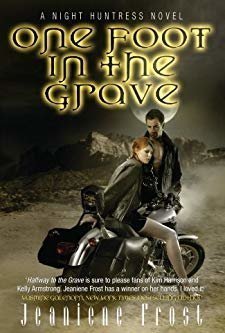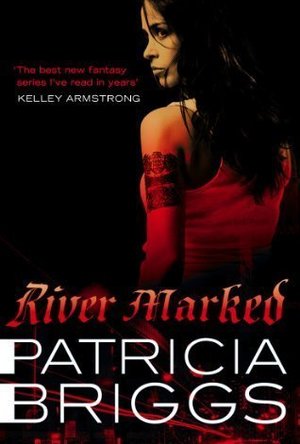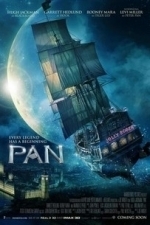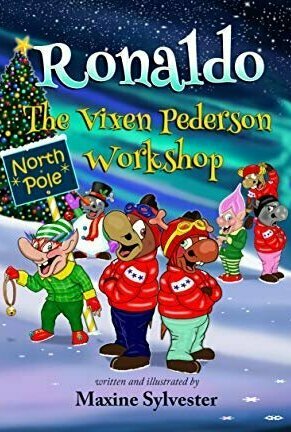Search
Search results

Beoplay E8 True Wireless Bluetooth In-Ear Headphones
Tech Watch
Elegant looks, premium sound, and truly wireless. The E8 earphones introduce a touch of luxury to...
Movie Metropolis (309 KP) rated World War Z (2013) in Movies
Jun 11, 2019
Brad Pitt has become one of Hollywood’s best loved actors over the years and it isn’t difficult to see why. His chiselled good looks, slick blonde hair and quiet confidence have all ensured he is never short of work. Here, he teams up with director Marc Forster who helmed the disappointing James Bond sequel, Quantum of Solace, in the latest zombie film to hit the screens; World War Z, but is it any good?
Pitt plays Gerry Lane, a former UN investigator who has chosen the quiet life and retired early to spend more time with his wife and children. Whilst taking his wife Karin and two daughters Rachel and Constance out in the car, they become stuck in heavy traffic which marks the start of the mayhem. From then on this 116 minute thrill ride puts the viewer on the edge of their seat more times than an Alton Towers rollercoaster.
After fleeing the hordes of ridiculously fast and ridiculously terrifying undead, Lane and his family board a US aircraft carrier where they are told they will be safe; however, as always, there is a price to pay. Gerry must start work once again to try and find the epicentre of the zombie virus – otherwise, the entire world will be lost. From here, Gerry’s mission is to travel across the globe trying to find what it is that has infected nearly 100% of the planet’s population.
What plays out could be described as a formulaic horror film, but it is so much more than that. Whilst it’s true that there isn’t enough character development, in fact there is only 5 minutes of it right at the beginning, director Marc Forster has cleverly allowed the audience to make up their own minds about the family’s back story and whether we care if they survive or not.
World War Z is not a film for the faint hearted, and whilst blood and guts are quite sparse for a movie with a 15 certificate, there are some truly terrifying moments, many of which will have your heart pumping through your chest.
There are scenes here that really get the adrenaline flowing, one of which involving a stowaway zombie onboard a commercial jet will leave you biting your lip, grabbing your seat and looking through your fingers in shock, horror and intense excitement. It’s safe to say I came away with very bitten fingernails.
Special effects are on par with some of the better blockbusters of the last couple of years. They aren’t as in your face as those in Transformers, nor as lacklustre as the CGI in I am Legend, they are right in the middle and because the effect is used incredibly subtly, you don’t notice when extras stop playing the zombies and the animators take over.
However, it is in the acting that this film really succeeds. Pitt is fantastic as Gerry Lane, his quiet sense of confidence never turns into arrogance as he fights for survival and this will hold the character in high esteem with audiences. He doesn’t pretend to be an action hero, heck, he even makes the kind of mistakes that any human would do if they were under pressure, and thankfully he does all of this beautifully; his characterisation is absolute perfection. The rest of his family are also excellent, Abigail Hargrove and Sterling Jerins who play Rachel and Constance respectively are very good indeed; you truly believe they are missing their father and cannot wait to see him return. The rest of the cast do very well with the limited roles they have, but let’s not forget that this is a Brad Pitt one-man show and he is more than up to the job.
Unfortunately, the cinematography really lets the film down. There is far too much handy-cam in the first 30 minutes, something which I hate. Directors often use it to sustain a sense of alarm and terror, but Marc Forster has used it to such an extent here that it made me feel physically sick. Moreover, whilst the story is solid, it is nothing more than that, and often the plot takes a back seat to the impressive action pieces meaning that the film seems to go through the motions of 10 minutes plot, 10 action, and so on.
Overall, World War Z is a very impressive film. The sheer scale of the virus means that Marc Forster has utilised some beautiful scenery from across the globe. Whilst it may be slightly too long for a zombie film at just under 2 hours, and have a distinct lack of character development; the impressive story, brilliant acting and very good special effects help lift it above the norm. This is a ride better than any rollercoaster, and is 100% worth the increasingly expensive price of a cinema admission ticket.
https://moviemetropolis.net/2013/06/22/world-war-z-review-2013/
Pitt plays Gerry Lane, a former UN investigator who has chosen the quiet life and retired early to spend more time with his wife and children. Whilst taking his wife Karin and two daughters Rachel and Constance out in the car, they become stuck in heavy traffic which marks the start of the mayhem. From then on this 116 minute thrill ride puts the viewer on the edge of their seat more times than an Alton Towers rollercoaster.
After fleeing the hordes of ridiculously fast and ridiculously terrifying undead, Lane and his family board a US aircraft carrier where they are told they will be safe; however, as always, there is a price to pay. Gerry must start work once again to try and find the epicentre of the zombie virus – otherwise, the entire world will be lost. From here, Gerry’s mission is to travel across the globe trying to find what it is that has infected nearly 100% of the planet’s population.
What plays out could be described as a formulaic horror film, but it is so much more than that. Whilst it’s true that there isn’t enough character development, in fact there is only 5 minutes of it right at the beginning, director Marc Forster has cleverly allowed the audience to make up their own minds about the family’s back story and whether we care if they survive or not.
World War Z is not a film for the faint hearted, and whilst blood and guts are quite sparse for a movie with a 15 certificate, there are some truly terrifying moments, many of which will have your heart pumping through your chest.
There are scenes here that really get the adrenaline flowing, one of which involving a stowaway zombie onboard a commercial jet will leave you biting your lip, grabbing your seat and looking through your fingers in shock, horror and intense excitement. It’s safe to say I came away with very bitten fingernails.
Special effects are on par with some of the better blockbusters of the last couple of years. They aren’t as in your face as those in Transformers, nor as lacklustre as the CGI in I am Legend, they are right in the middle and because the effect is used incredibly subtly, you don’t notice when extras stop playing the zombies and the animators take over.
However, it is in the acting that this film really succeeds. Pitt is fantastic as Gerry Lane, his quiet sense of confidence never turns into arrogance as he fights for survival and this will hold the character in high esteem with audiences. He doesn’t pretend to be an action hero, heck, he even makes the kind of mistakes that any human would do if they were under pressure, and thankfully he does all of this beautifully; his characterisation is absolute perfection. The rest of his family are also excellent, Abigail Hargrove and Sterling Jerins who play Rachel and Constance respectively are very good indeed; you truly believe they are missing their father and cannot wait to see him return. The rest of the cast do very well with the limited roles they have, but let’s not forget that this is a Brad Pitt one-man show and he is more than up to the job.
Unfortunately, the cinematography really lets the film down. There is far too much handy-cam in the first 30 minutes, something which I hate. Directors often use it to sustain a sense of alarm and terror, but Marc Forster has used it to such an extent here that it made me feel physically sick. Moreover, whilst the story is solid, it is nothing more than that, and often the plot takes a back seat to the impressive action pieces meaning that the film seems to go through the motions of 10 minutes plot, 10 action, and so on.
Overall, World War Z is a very impressive film. The sheer scale of the virus means that Marc Forster has utilised some beautiful scenery from across the globe. Whilst it may be slightly too long for a zombie film at just under 2 hours, and have a distinct lack of character development; the impressive story, brilliant acting and very good special effects help lift it above the norm. This is a ride better than any rollercoaster, and is 100% worth the increasingly expensive price of a cinema admission ticket.
https://moviemetropolis.net/2013/06/22/world-war-z-review-2013/
Rachel King (13 KP) rated One Foot in the Grave (Night Huntress, #2) in Books
Feb 11, 2019
I love that Cat Crawfield works for the government with a "Special Forces" team, instead of the usual rogue behavior that I read in many Urban Fantasy series. It's interesting that it takes Bones this long to find Cat, and by a seeming coincidence at that. It occurred to me while reading that if Bones really was as good at what he does as he says he is, then he would have found her within the first year easily.
Skipping ahead to the best part about this series, in my personal opinion, is the sexual chemistry between Cat and Bones. I confess, my curiosity about chapter 32 of this book, after reading a book review that made vague hints about it, is what propelled me to start this series. I actually read that chapter first once I got my hands on this book to satisfy my curiosity, and words can not describe how hot this chapter is! So often, I find that sex scenes in novels abuse cliches or do not use the details adequately for my personal tastes, but this chapter throws conventional decorum out the window without disgusting me or making me too uncomfortable to read. Plus, the more fantastical aspects of the two characters made for some unique and handy details that Jeaniene Frost used quite well to create such heat between Cat and Bones. Yes, I read that chapter several more times before I turned the book back into the library.
Cat Crawfield has really grown into a character of strength and determination from the first book, Halfway to the Grave (Night Huntress, Book 1). She knows how to use her abilities to their maximum potential and her self-confidence is strong enough to stand up to even her mother. No longer is she like a pupil to Bones' instruction, but an equal to him in every way that matters. Bones is just as cocky and alluring as he ever was - I wouldn't change a thing about him. It is obvious that he has more than a few secrets up his sleeve, but I don't mind the wait.
I find it intriguing how Cat can alter perceptions and prejudices of the people around her as easily as she does, as is shown with the men on her team. This shows just how much potential she carries to change her world on a larger scale. I can't wait to pick up the next book in the series, At Grave's End (Night Huntress, Book 3).
Skipping ahead to the best part about this series, in my personal opinion, is the sexual chemistry between Cat and Bones. I confess, my curiosity about chapter 32 of this book, after reading a book review that made vague hints about it, is what propelled me to start this series. I actually read that chapter first once I got my hands on this book to satisfy my curiosity, and words can not describe how hot this chapter is! So often, I find that sex scenes in novels abuse cliches or do not use the details adequately for my personal tastes, but this chapter throws conventional decorum out the window without disgusting me or making me too uncomfortable to read. Plus, the more fantastical aspects of the two characters made for some unique and handy details that Jeaniene Frost used quite well to create such heat between Cat and Bones. Yes, I read that chapter several more times before I turned the book back into the library.
Cat Crawfield has really grown into a character of strength and determination from the first book, Halfway to the Grave (Night Huntress, Book 1). She knows how to use her abilities to their maximum potential and her self-confidence is strong enough to stand up to even her mother. No longer is she like a pupil to Bones' instruction, but an equal to him in every way that matters. Bones is just as cocky and alluring as he ever was - I wouldn't change a thing about him. It is obvious that he has more than a few secrets up his sleeve, but I don't mind the wait.
I find it intriguing how Cat can alter perceptions and prejudices of the people around her as easily as she does, as is shown with the men on her team. This shows just how much potential she carries to change her world on a larger scale. I can't wait to pick up the next book in the series, At Grave's End (Night Huntress, Book 3).
Rachel King (13 KP) rated River Marked (Mercy Thompson, #6) in Books
Feb 11, 2019
This book takes a different direction than previous books in the series, because Mercy is doing something that I think is quite rare in the typical Urban Fantasy heroine -- she is getting married. As a married woman, I quite like this turn and the extra confidence and sense of permanence it gives Mercy, but I don't think this is something that every reader will fully appreciate. Still, it feels fresh and new to me, and I think it has the potential to "breathe new life" into the series.
The loose ends of Stefan's mess from the previous book are quickly tied up, and the plot swiftly moves on to a "surprise" wedding for Mercy. The set-up of the wedding was quite endearing, and I even teared up a bit over it. These two sub-plots take place rather quickly, though, as the main focus of the book is what occurs during Mercy and Adam's honeymoon.
Mercy figures out quickly that they have been set up by certain fairy acquaintances for reasons that no one really knows. I was laughing at this, as it feels like a bumper sticker motto: If the world needs saving - send Mercy! So of course, Urban Fantasy heroine Mercy does not get a typical honeymoon, but one fraught with peril and impending doom.
While it may seem on the surface to be a random way to introduce new characters and magical elements into the series, I think that the events that happened at the Columbia River were a great way to focus on Mercy's native heritage and answer many of the questions that I have been harboring through the series about her ability to transform into a coyote. She makes some new friends of native descent that are able to help her tackle her looming battle with the river monster, and she discovers that she is not the only native who can become another animal. She also learns more about her father and his relationship with her mother. The walking stick also plays a major part, though I hope this is not the last we've seen of it. That stick has too many quirks to just let it go.
The river monster itself was quite a creation - as much fantasy as I have read, I've never come across anything quite like it, though some creatures of Greek mythology comes close. Abominations like that remind me why I avoid watching horror movies. The behavior of the otterkin also reminded me of the way members of a cult exalt their leader - creepy. I can't wait for the next book!
The loose ends of Stefan's mess from the previous book are quickly tied up, and the plot swiftly moves on to a "surprise" wedding for Mercy. The set-up of the wedding was quite endearing, and I even teared up a bit over it. These two sub-plots take place rather quickly, though, as the main focus of the book is what occurs during Mercy and Adam's honeymoon.
Mercy figures out quickly that they have been set up by certain fairy acquaintances for reasons that no one really knows. I was laughing at this, as it feels like a bumper sticker motto: If the world needs saving - send Mercy! So of course, Urban Fantasy heroine Mercy does not get a typical honeymoon, but one fraught with peril and impending doom.
While it may seem on the surface to be a random way to introduce new characters and magical elements into the series, I think that the events that happened at the Columbia River were a great way to focus on Mercy's native heritage and answer many of the questions that I have been harboring through the series about her ability to transform into a coyote. She makes some new friends of native descent that are able to help her tackle her looming battle with the river monster, and she discovers that she is not the only native who can become another animal. She also learns more about her father and his relationship with her mother. The walking stick also plays a major part, though I hope this is not the last we've seen of it. That stick has too many quirks to just let it go.
The river monster itself was quite a creation - as much fantasy as I have read, I've never come across anything quite like it, though some creatures of Greek mythology comes close. Abominations like that remind me why I avoid watching horror movies. The behavior of the otterkin also reminded me of the way members of a cult exalt their leader - creepy. I can't wait for the next book!
It just shouldn’t be this hard!”
Raise your hand if you’ve ever had a day where everything that could go wrong does go wrong—you lock your keys in the car while it’s running, lose control with your kids, make a mistake at the office that results in hours more work. And just when you think not one more thing could possibly happen . . . well, fill in the blank. The struggle is real, friends. It may not be major stuff. Lives are not on the line here. But it makes us feel awful . . . and then we feel guilty for stressing when other people have “real” problems that are so much more serious. Yet the fact remains: We live in a world that often feels harder than we think it should be. And so it can be easy to believe the stories we tell ourselves—that we’re doing it wrong, that we’ll be stuck in this place forever, that God doesn’t love us. We struggle to practice gratitude, to make godly choices, and to live our daily lives with confidence and contentment. So what can we do? Join popular Bible teacher and counselor Nicole Unice to discover why the struggle is real . . . and what to do about it. Nicole offers practical tools to help you navigate the daily ups and downs, and ways to rewrite your struggle into a new, God-centered life story. The Struggle Is Real is an invitation to take the hard, hurtful, and confusing moments and turn them into opportunities to grow in wisdom, strength, and joy.
My Thoughts: We all have days that seem to go wrong; sometimes life just seems to be a struggle. Where do we turn? Nicole Unice teaches us to turn to God and to understand why these days happen to us and how to deal with them. She shows us how to make "Godly" choices that will help us, rather than make us feel joyless.
This is a wonderful book, that I encourage all to read. I know we all have had a period of time in our lives when every day is difficult, a day when we say "Why Me?". This book will help us understand why life seems like a struggle, why we respond the way we do in some situations. This book will prepare you and help you. We need to remember that God is greatest, and He knows best. In other words, trials form us, shape our character, make us stronger and God is in control!
This is an exellent read and highly recommended.
Cli
Raise your hand if you’ve ever had a day where everything that could go wrong does go wrong—you lock your keys in the car while it’s running, lose control with your kids, make a mistake at the office that results in hours more work. And just when you think not one more thing could possibly happen . . . well, fill in the blank. The struggle is real, friends. It may not be major stuff. Lives are not on the line here. But it makes us feel awful . . . and then we feel guilty for stressing when other people have “real” problems that are so much more serious. Yet the fact remains: We live in a world that often feels harder than we think it should be. And so it can be easy to believe the stories we tell ourselves—that we’re doing it wrong, that we’ll be stuck in this place forever, that God doesn’t love us. We struggle to practice gratitude, to make godly choices, and to live our daily lives with confidence and contentment. So what can we do? Join popular Bible teacher and counselor Nicole Unice to discover why the struggle is real . . . and what to do about it. Nicole offers practical tools to help you navigate the daily ups and downs, and ways to rewrite your struggle into a new, God-centered life story. The Struggle Is Real is an invitation to take the hard, hurtful, and confusing moments and turn them into opportunities to grow in wisdom, strength, and joy.
My Thoughts: We all have days that seem to go wrong; sometimes life just seems to be a struggle. Where do we turn? Nicole Unice teaches us to turn to God and to understand why these days happen to us and how to deal with them. She shows us how to make "Godly" choices that will help us, rather than make us feel joyless.
This is a wonderful book, that I encourage all to read. I know we all have had a period of time in our lives when every day is difficult, a day when we say "Why Me?". This book will help us understand why life seems like a struggle, why we respond the way we do in some situations. This book will prepare you and help you. We need to remember that God is greatest, and He knows best. In other words, trials form us, shape our character, make us stronger and God is in control!
This is an exellent read and highly recommended.
Cli
Movie Metropolis (309 KP) rated Pan (2015) in Movies
Jun 11, 2019
Where's the magic? Where's the sparkle?
The mesmerising story of Peter Pan has been told by numerous directors, playwrights and novelists over the years with Disney’s brilliant animation being one of the highlights in a series of standout moments.
Now, the story receives a very 21st-century makeover in Pan, but does director Joe Wright’s brooding reimagining sink or swim?
Unfortunately, this occasionally beautifully shot film ends up causing more of a headache than Michael Bay’s much-maligned Transformers series in a movie that lacks the magic and sparkle of the traditional tale, instead focusing too much on special effects and noise – my god this is a loud film.
Stars like Hugh Jackman, Rooney Mara, Garrett Hedlund and Amanda Seyfriend take their places amongst a cast of forgettable characters that never seem to make any sort of impression, despite Pan’s 111 minute running time.
Following the story of Peter, played by a particularly wooden Levi Miller, Pan takes place many years before the events of the famous story, following a similar path to the recent Alice in Wonderland remake and Oz the Great and the Powerful.
Unfortunately, including a previously unmentioned backstory to the character brings about the same problems as it did for the aforementioned films. Pan has no charm and is completely void of originality with the production team borrowing many elements from movies like Avatar, the Harry Potter series and even the Indiana Jones franchise.
Hugh Jackman’s Blackbeard is the only character to make any sort of impact and the Wolverine star is a delight to watch in a role that requires masses of cheese and just a little malice. The rest of the cast are as wooden as the galleons in which they are transported and this is a real shame, given the talent on offer.
Elsewhere, the cinematography is exceptional with some amazing sequences shot with flair and supreme confidence but the poor CGI detracts from the spectacle. For a film with a budget of $150million, it has some of the worst special effects I have ever come across.
Nevertheless, there is much for younger children to enjoy. The bright colours and constant shifts in tone ensure Pan never settles into a rut, despite its bland characters and lacklustre special effects.
Overall, Pan is a crushing disappointment. The special effects are poor, the promising cast never gels together and the story is a hybrid of other, better films that results in a movie that will leave you with a headache, rather than a sense of magic and sparkle.
https://moviemetropolis.net/2015/10/18/wheres-the-magic-wheres-the-sparkle-pan-review/
Now, the story receives a very 21st-century makeover in Pan, but does director Joe Wright’s brooding reimagining sink or swim?
Unfortunately, this occasionally beautifully shot film ends up causing more of a headache than Michael Bay’s much-maligned Transformers series in a movie that lacks the magic and sparkle of the traditional tale, instead focusing too much on special effects and noise – my god this is a loud film.
Stars like Hugh Jackman, Rooney Mara, Garrett Hedlund and Amanda Seyfriend take their places amongst a cast of forgettable characters that never seem to make any sort of impression, despite Pan’s 111 minute running time.
Following the story of Peter, played by a particularly wooden Levi Miller, Pan takes place many years before the events of the famous story, following a similar path to the recent Alice in Wonderland remake and Oz the Great and the Powerful.
Unfortunately, including a previously unmentioned backstory to the character brings about the same problems as it did for the aforementioned films. Pan has no charm and is completely void of originality with the production team borrowing many elements from movies like Avatar, the Harry Potter series and even the Indiana Jones franchise.
Hugh Jackman’s Blackbeard is the only character to make any sort of impact and the Wolverine star is a delight to watch in a role that requires masses of cheese and just a little malice. The rest of the cast are as wooden as the galleons in which they are transported and this is a real shame, given the talent on offer.
Elsewhere, the cinematography is exceptional with some amazing sequences shot with flair and supreme confidence but the poor CGI detracts from the spectacle. For a film with a budget of $150million, it has some of the worst special effects I have ever come across.
Nevertheless, there is much for younger children to enjoy. The bright colours and constant shifts in tone ensure Pan never settles into a rut, despite its bland characters and lacklustre special effects.
Overall, Pan is a crushing disappointment. The special effects are poor, the promising cast never gels together and the story is a hybrid of other, better films that results in a movie that will leave you with a headache, rather than a sense of magic and sparkle.
https://moviemetropolis.net/2015/10/18/wheres-the-magic-wheres-the-sparkle-pan-review/
Gareth von Kallenbach (980 KP) rated Office Christmas Party (2016) in Movies
Jun 19, 2019
Josh Parker (Jason Bateman) is a man with many things on his mind. He has just finalized a divorce which has cost him his house, tons of money, and his confidence. Known for bunting instead of swinging away, Josh heads to his office to move on with his life as Christmas approaches.
His lead programmer Tracey (Olivia Munn) constantly reminds him of his playing it safe mentality to the point where she fed up with him and his ways.
Thankfully for Josh his boss Clay (T.J. Miller), values him and even though he is a goof who happened to be given the office by his late father who started the company, things are looking up.
That is until Interim CEO Carol (Jennifer Aniston) arrives and makes no effort to hide her disdain for her brother Clay, nor the company not meeting her expectations.
Carol quickly tells Josh and Clay that they will have to downsize if they want to stay open and in a very unpopular move, eliminates bonuses and the office Christmas Party.
Since the movie is called “Office Christmas Party”, you know that Carol’s request will fall on deaf ears as Clay convinces his sister that they are about to close a major client (Courtney B. Vance), and as such will have the deal set before she lands in London later that evening.
With nothing to go on aside from desperation, Clay puts the lovable but highly eccentric office into overdrive to create a party unlike any other so they can land the contract needed to stay in business.
When the party arrives one series of epic misadventures and mishaps after another arises which threatens to sink the company and everyone involved once and for all.
The film follows a fairly linear and somewhat predictable path but the strong cast does a great job and Kate McKinnon as the ultra-weird H.R. lead steals several of the scenes in which she is in. Bateman plays pretty much the same character that he has played in most of his recent work as the everyman that tries to make the best of the bad situation and Miller is pretty much recycling the same character he plays on Silicon Valley. That being said, there are plenty of laughs if you do not mind the very bawdy humor and Directors Josh Gordon and Will Speck keep things moving at a steady pace with laughs throughout the film.
While it is likely not going to be a holiday classic, “Office Christmas Party”, is a very fun and enjoyable diversion.
http://sknr.net/2016/12/09/office-christmas-party/
His lead programmer Tracey (Olivia Munn) constantly reminds him of his playing it safe mentality to the point where she fed up with him and his ways.
Thankfully for Josh his boss Clay (T.J. Miller), values him and even though he is a goof who happened to be given the office by his late father who started the company, things are looking up.
That is until Interim CEO Carol (Jennifer Aniston) arrives and makes no effort to hide her disdain for her brother Clay, nor the company not meeting her expectations.
Carol quickly tells Josh and Clay that they will have to downsize if they want to stay open and in a very unpopular move, eliminates bonuses and the office Christmas Party.
Since the movie is called “Office Christmas Party”, you know that Carol’s request will fall on deaf ears as Clay convinces his sister that they are about to close a major client (Courtney B. Vance), and as such will have the deal set before she lands in London later that evening.
With nothing to go on aside from desperation, Clay puts the lovable but highly eccentric office into overdrive to create a party unlike any other so they can land the contract needed to stay in business.
When the party arrives one series of epic misadventures and mishaps after another arises which threatens to sink the company and everyone involved once and for all.
The film follows a fairly linear and somewhat predictable path but the strong cast does a great job and Kate McKinnon as the ultra-weird H.R. lead steals several of the scenes in which she is in. Bateman plays pretty much the same character that he has played in most of his recent work as the everyman that tries to make the best of the bad situation and Miller is pretty much recycling the same character he plays on Silicon Valley. That being said, there are plenty of laughs if you do not mind the very bawdy humor and Directors Josh Gordon and Will Speck keep things moving at a steady pace with laughs throughout the film.
While it is likely not going to be a holiday classic, “Office Christmas Party”, is a very fun and enjoyable diversion.
http://sknr.net/2016/12/09/office-christmas-party/
Gareth von Kallenbach (980 KP) rated The Tourist (2010) in Movies
Aug 8, 2019
Frank Tupelo, played by Johnny Depp, is a math teacher from Wisconsin who decides to take a vacation in Italy, in hopes of mending his broken heart. While traveling on a train bound for Venice, he befriends an interesting and mysterious woman who sits next to him. Elise Clifton-Ward, played by Angelina Jolie, has been on the run from the mob and the British police for the past couple of years because her lover, Alexander Pearce, embezzled over $2 billion from a mobster. The British police want their cut for taxes owed, but without really knowing what Alexander looks like, the police are essentially just waiting for Elise to make contact with him.
Elise picks Frank to play a part in her plans of steering the mob and the British police in a different direction. After arriving in Venice, they both go their separate ways, but still end up finding each other later while Frank is sightseeing. Elise invites him on her boat and then takes him back to her hotel. They share a few passionate moments as Elise attempts to make the police who are spying on them believe that Frank is really Alexander. When Frank awakens the next day, he realizes that Elise is gone. This is where the action begins. Not only are the police after Frank, so are the mobsters from whom Alexander stole, making for a messy situationi for Frank. With a lot of great twists and turns in this movie as well as smart dialogue, The Tourist succeeds in putting a smile on your face while keeping you on the edge of your seat.
Angelina Jolie’s Elise Ward knows the power of her beauty and uses it to her great advantage. The strong supporting cast includes the likes of Paul Bettany, Timothy Dalton and Steven Berkoff. Unlike most of Johnny Depp’s other movies where he exudes confidence, he is like a lost puppy being chased for something he is unaware of doing. I do have to say that I am always able to see some of Depp’s most famous character, Captain Jack Sparrow, shine through in his current roles. If you watch closely during a chase scene, he starts to run away from the mob exactly as Captain Jack would. Or maybe that’s just how Johnny Depp runs.
Directed by Florian Henckel von Donnersmarck, who makes great use of spectacular views and locales, The Tourist is a great action-adventure with storyline that keeps you interested. Sharp, witty dialog and two of the hottest stars playing the leads make The Tourist a movie worth watching.
Elise picks Frank to play a part in her plans of steering the mob and the British police in a different direction. After arriving in Venice, they both go their separate ways, but still end up finding each other later while Frank is sightseeing. Elise invites him on her boat and then takes him back to her hotel. They share a few passionate moments as Elise attempts to make the police who are spying on them believe that Frank is really Alexander. When Frank awakens the next day, he realizes that Elise is gone. This is where the action begins. Not only are the police after Frank, so are the mobsters from whom Alexander stole, making for a messy situationi for Frank. With a lot of great twists and turns in this movie as well as smart dialogue, The Tourist succeeds in putting a smile on your face while keeping you on the edge of your seat.
Angelina Jolie’s Elise Ward knows the power of her beauty and uses it to her great advantage. The strong supporting cast includes the likes of Paul Bettany, Timothy Dalton and Steven Berkoff. Unlike most of Johnny Depp’s other movies where he exudes confidence, he is like a lost puppy being chased for something he is unaware of doing. I do have to say that I am always able to see some of Depp’s most famous character, Captain Jack Sparrow, shine through in his current roles. If you watch closely during a chase scene, he starts to run away from the mob exactly as Captain Jack would. Or maybe that’s just how Johnny Depp runs.
Directed by Florian Henckel von Donnersmarck, who makes great use of spectacular views and locales, The Tourist is a great action-adventure with storyline that keeps you interested. Sharp, witty dialog and two of the hottest stars playing the leads make The Tourist a movie worth watching.
Night Reader Reviews (683 KP) rated Ronaldo: The Vixen Pederson Workshop in Books
Jan 10, 2020
Honest Review for Free Copy of Book
Ronaldo: The Vixen Peterson Workshop is another amazing book by Maxine Sylvester. It is short, fun, and carries some wonderful messages to its readers. Read it as a stand-alone book or part of the series, either way, this is one book you don’t want to miss.
Ronaldo and Rudi take readers to the North Pole as they take part in The Vixen Peterson Workshop, focusing on teamwork. The young reindeer are all put into teams and as it happens Ronaldo’s team gets the one cadet that no one wants, Cupid. Poor Cupid is a sweet reindeer with a wonderful attitude, but a terrible flyer. All the members of Ronaldo’s team look to him for guidance with hopes that they may still win the race at the end of the workshop.
Ronaldo befriends Cupid and tries his best to help her. Finally, he discovers why Cupid has so many problems with flying and can help her correct the issue. As luck would have it Ronaldo has a score throat the day of the big race and is unable to lead his team. He gives up his position to Cupid which builds her confidence even more.
I loved how Ronaldo not only befriends Cupid and tires to help her but also stands up for her, even when she is not around. There are very few people who will do something like that anymore and it is a lesson that everyone needs to learn, especially children. It is a rare occurrence that I can truly say there is nothing that I did not like about this book. In previous Ronaldo books I have mentioned that I don’t like the fart jokes and while I could still do without them, they have become a common occurance in this series that I have come to expect.
Just like the rest of the series, this book is great for elementary students. There may be a couple of words that they need help with but overall it shouldn’t be a problem. Alternatively, it would be great for parents to read to their children. I rate this book with a perfect 4 out of 4 once again. This book is wonderful. The story is fun, yet packed full of strong messages. It offers many learning opportunities for children and discussion points for parents.
https://www.facebook.com/nightreaderreviews
https://www.nightreaderreviews.blogspot.com
Ronaldo and Rudi take readers to the North Pole as they take part in The Vixen Peterson Workshop, focusing on teamwork. The young reindeer are all put into teams and as it happens Ronaldo’s team gets the one cadet that no one wants, Cupid. Poor Cupid is a sweet reindeer with a wonderful attitude, but a terrible flyer. All the members of Ronaldo’s team look to him for guidance with hopes that they may still win the race at the end of the workshop.
Ronaldo befriends Cupid and tries his best to help her. Finally, he discovers why Cupid has so many problems with flying and can help her correct the issue. As luck would have it Ronaldo has a score throat the day of the big race and is unable to lead his team. He gives up his position to Cupid which builds her confidence even more.
I loved how Ronaldo not only befriends Cupid and tires to help her but also stands up for her, even when she is not around. There are very few people who will do something like that anymore and it is a lesson that everyone needs to learn, especially children. It is a rare occurrence that I can truly say there is nothing that I did not like about this book. In previous Ronaldo books I have mentioned that I don’t like the fart jokes and while I could still do without them, they have become a common occurance in this series that I have come to expect.
Just like the rest of the series, this book is great for elementary students. There may be a couple of words that they need help with but overall it shouldn’t be a problem. Alternatively, it would be great for parents to read to their children. I rate this book with a perfect 4 out of 4 once again. This book is wonderful. The story is fun, yet packed full of strong messages. It offers many learning opportunities for children and discussion points for parents.
https://www.facebook.com/nightreaderreviews
https://www.nightreaderreviews.blogspot.com
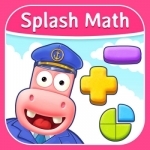
Grades K to 5 Kids Math Games
Education and Games
App
We make math fun & engaging. Over 20 Million kids use the Splash Math program to Boost Confidence,...

